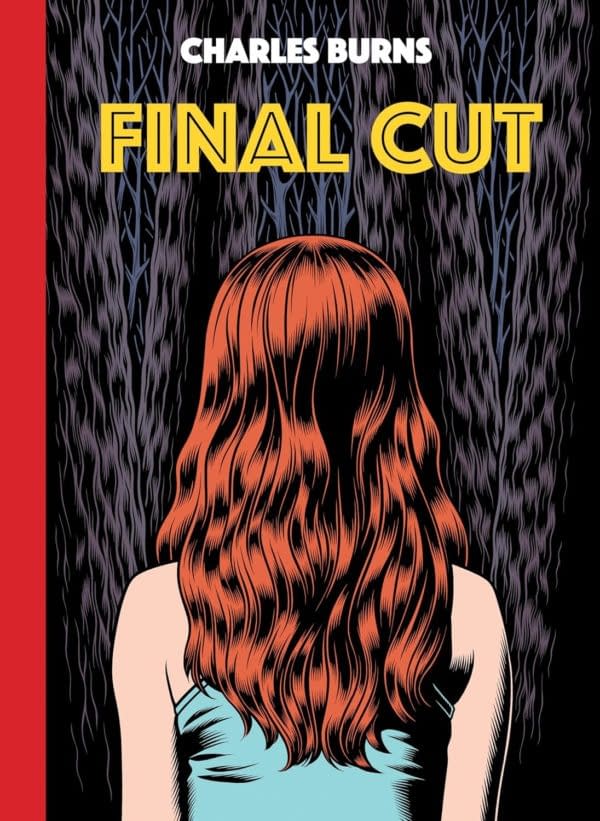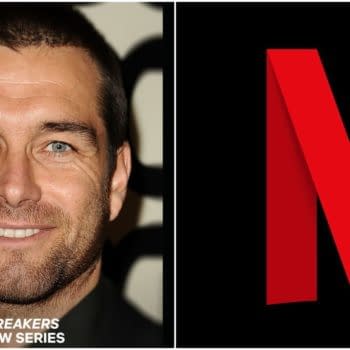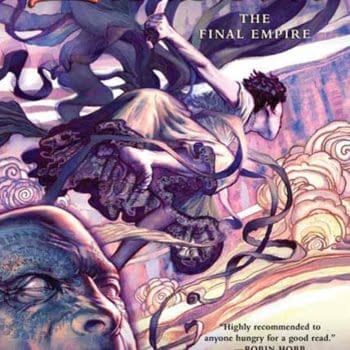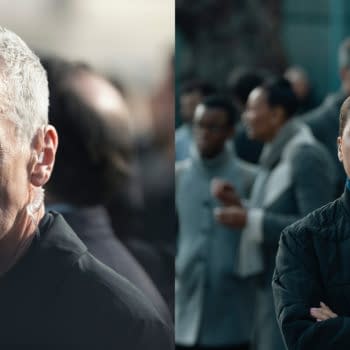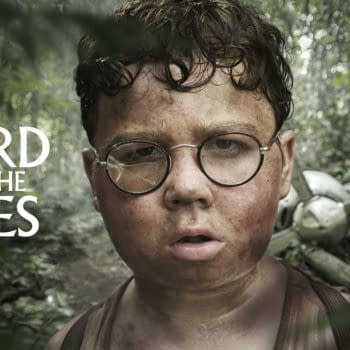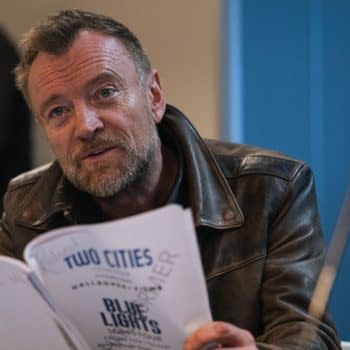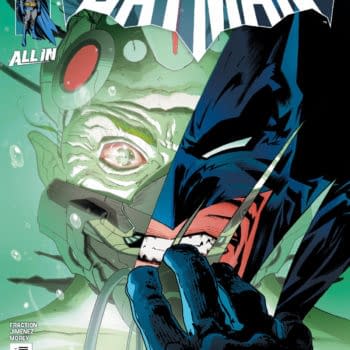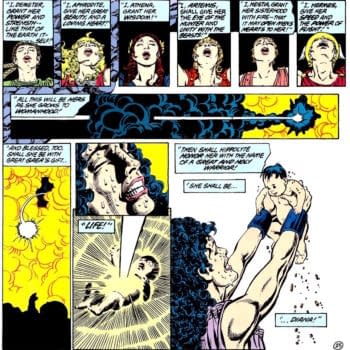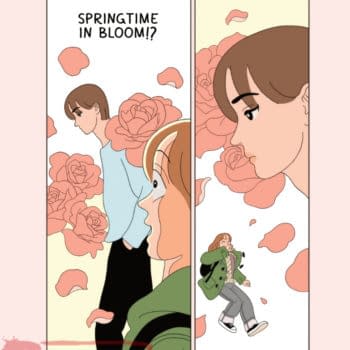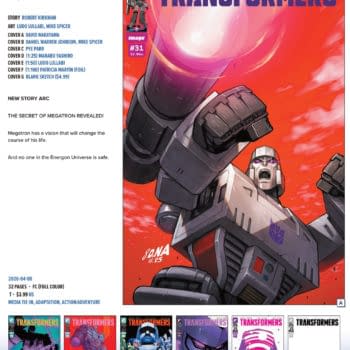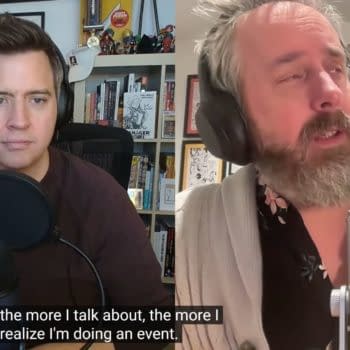Posted in: Comics, Review | Tagged: b movies, black hole, Charles Burns, coming of age, Final Cut, graphic novel, horror, movies, Pantheon Books, science fiction
Final Cut: Charles Burns' Masterpiece of Quiet Teenage Horror
Final Cut, Charles Burns' new graphic novel about troubled teenagers, moviemaking, and dreams, is one of the best of 2024.
Article Summary
- "Final Cut" by Charles Burns explores teenage horror, love, and filmmaking in a haunting graphic novel setting.
- The story follows Brian, a teen battling family issues, and his love for Laurie, his creative muse and escape.
- Set in the 1970s, "Final Cut" delves into themes of mental health, identity, and the power of storytelling.
- Available in print, the novel offers a tactile, emotional experience that deepens with each reread.
In a time when major events in graphic novels are fewer and further between, Final Cut is such an event. A new graphic novel by Charles Burns is a big deal, and this is his first since Black Hole, an aching, quiet horror tragedy about teenage love, mental illness, and the limits of movies as an outlet and escape. Final Cut is about teenage Brian and his friends as they set out to make a horror movie that combines every horror and Science Fiction movie they ever saw. When Brian meets Laurie at a party, he falls in love with her at first sight. She becomes his muse, his escape, and his hopes as he copes with an alcoholic mother who's become dysfunctional since his father left and has his own depression to cope with. Brian is socially awkward and only truly comes alive when he watches movies and plans to direct the magnum opus that is his lifeline. He casts Laurie as the damsel in distress and femme fatale, his token and his savior. But Laurie is going through her own stuff.
While she likes Brian as a friend, she works hard to ignore how he sees her. The line between Brian's reality, the movie he's making, the movies, and his dreams start to blend in Brian's, and the graphic novel itself becomes more entangled as his life spirals quietly into tragedy and Laurie's sexual awakening begins. The problem is, this was the 1970s when depression and mental health were barely conditions, let alone therapy. Everyone's inability to recognize their friends' problems resulted in tragedy right under their noses.
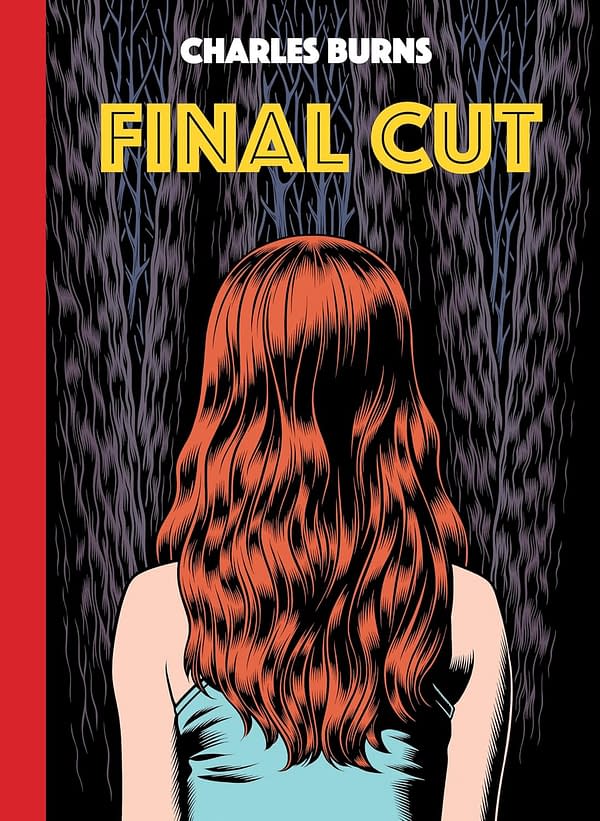
Charles Burns: The Return of a Graphic Novel Master
Charles Burns is one of the masters of comics, the closest counterpart to David Lynch we have. He plays with the tropes and wreckage of classic pop culture and pulp fiction. Schlocky horror movies and the psychosexual subtexts lurking underneath them and pushing them to the limits of body horror and trippy hallucinatory psychosis, all under a clean, seemingly calm but feverish veneer. Final Cut is Burns' most mature work and his most subtle in its naturalism. There are no big eruptions of violence, no explosive emotional outbursts as the characters try their best to be friends with each other as they cope with their own inner turmoil, and there, the quiet tragedy unfolds.
Final Cut is very much a comic or graphic novel, not a movie in picture form. In its use of panel transition, the storytelling blurs the characters' reality with the film they're making and the classic Hollywood horror movies they watch to create the space in Brian's head and Laurie's confused coming-of-age. They both experience a romantic and sexual awakening they don't expect. Brian falls in love with Laurie in a combination of male lust and a desperate need for a kindred spirit as he battles his emotional problems. Making movies becomes a lifeline for Brian while it's a fun hobby for his friends, but Laurie finds something as his star and muse that isn't what he's seeking but what she didn't know she wanted. Neither Laurie nor the gang realize Brian's sanity is hanging by a thread. Nobody is a villain in this story. They're just kids being kids, trying to be friends, and still too young to understand what they or their friends are going through as they struggle with growing up.
The effect of reading Final Cut as a book in your hands is a multilayered experience. There's something more organic in the tactile experience of seeing the words and images on paper as if the mood and the characters' emotions seep into you in a way that reading on a screen wouldn't, so it's just as well that it's only available as a hardcover print edition to show its substance. Like watching a good movie, each time you reread it, it brings a new feeling, more nuance, and another layer. You can dwell on each panel and face for as long as you like, and the faces gather more meaning behind the lines. It achieves what movies do with faces and emotions differently. Brian's quietly still face still holds endless depths of anxiety, uncertainty, and turmoil. Laurie's face carries endless guilt and sadness at what she doesn't quite know she's done. Like the movies, Final Cut is about faces and the worlds of regret behind them. The final cut is the movie of Brian's dreams, perfect in ways real life can never be. This is one of the best graphic novels of 2024.
Final Cut is now available and highly recommended.
